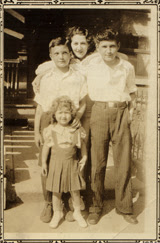In my younger days we would thumb through the dictionary with pudgy fingers, looking for naughty words to giggle over.
Words far more interesting and instructive were found at later dates in my development.
Modern dictionaries do more than give one the etymology, pronunciation, parts of speech and definition of words. They are busy doing a host of things related and unrelated to proper and common nouns and words.
The Explanatory chart will demonstrate minor and major stresses, sense dividers, sense numerals, sense letters, stylistic and subject labels, uppercase and lowercase, and continue to tear the words apart in torturous but meaningful ways. Ah me, all those stresses.
Synonyms and antonyms are thrown in from time to time, as an additional goodie when the lexicographers feel it may be of special interest.
Taxonomic entries of plants and animals are given . No, I am not going to define the word.
The English language and its history are found in the preface. Interesting things are said about the origin and world importance of the language. Aren’t you glad you learned the language?
A tabular history of the English language follows. Did you know there were extensive migrations of Indo-European speakers to India, Greece, and Western Europe in the year 3000 B.C. or so? You didn’t?
Go right out and get yourself a good dictionary.
Biographical names start at page 1407 of Webster’s New Collegiate Dictionary and list 8 pages worth of towns, cities, states, countries, rivers and lakes. I discovered that (take a deep breath) Aquascalientes was a state in Central Mexico with an area covering 2499 square miles, an having a population of 334,936 souls, (since there are a lot of cold nights in that state) the population increased by 98,745 by the time January 2007 rolled around. I also discovered that San Francisco exists as well and is populated by 715, 674 souls of every description and stripe and visited by millions yearly to let their hair down. S.F. is a city and port in western California on San Francisco Bay and the good old Pacific.
Want more? Oh, you idiots. Zodiac names and signs are there for your astrological pleasure. If you look these up you can consider yourself to be double idiots. I lean towards astronomy. Chacun a son gout, (to each his own.)
Foreign words and phrases is a section devoid of one English word but you might find a few thrown in for good luck. Repeat after me --- Au pays des aveugles les borgnes sont Roi, (Get your collective tongues back in position.) Translation? In the country of the blind, the one-eyed men are kings. Clever, eh what?
Name, population, and location and founding date list colleges and universities in Canada and the United States. If you managed to get out of high school with a passing mark of sorts, you might just look into it.
Want to have your hand pinpointed as in Palmistry?
Want to know the parts of a horse? Webster reveals all for the curious.
Ready for metric? It’s there under weights and measures. Conversions galore. Can you imagine what this could do to the song industry? Try this. I’ll walk 1.609 kilometers for one of your smiles.
Most of the world has gone metric. It is the way to go but the good old US of A is content to stay put.
Want to know what a Paramecium looked like? You didn’t? Nevertheless, Webster thought it important to let you see it.
Have a hard time with plurals? No more. It’s all there. Want to fool your friends? Win a bet? Just drop the word ‘phenomenon’ and let it lay around a bit. Challenge them to give you the plural of the word and sit back and wait as they stumble and fumble with the answer. Then collect your bet and show them your smarts by spelling the plural by heart – ‘phenomena’. This might be the only plural with fewer letters than the singular version.
Want to bone up on punctuation, capitalization, forms of address and styles in business correspondence? All these and more await you and can be found in any half decent dictionary.
Proofread? Your dictionary will show you the marks proofreaders use to tear your literary masterpieces to shreds.
There is adventure therein. Seek and you shall find words like, ladida and octogenarian – Your humble author of this important work remains humble.
Tuesday, May 15, 2007
Subscribe to:
Post Comments (Atom)



























No comments:
Post a Comment